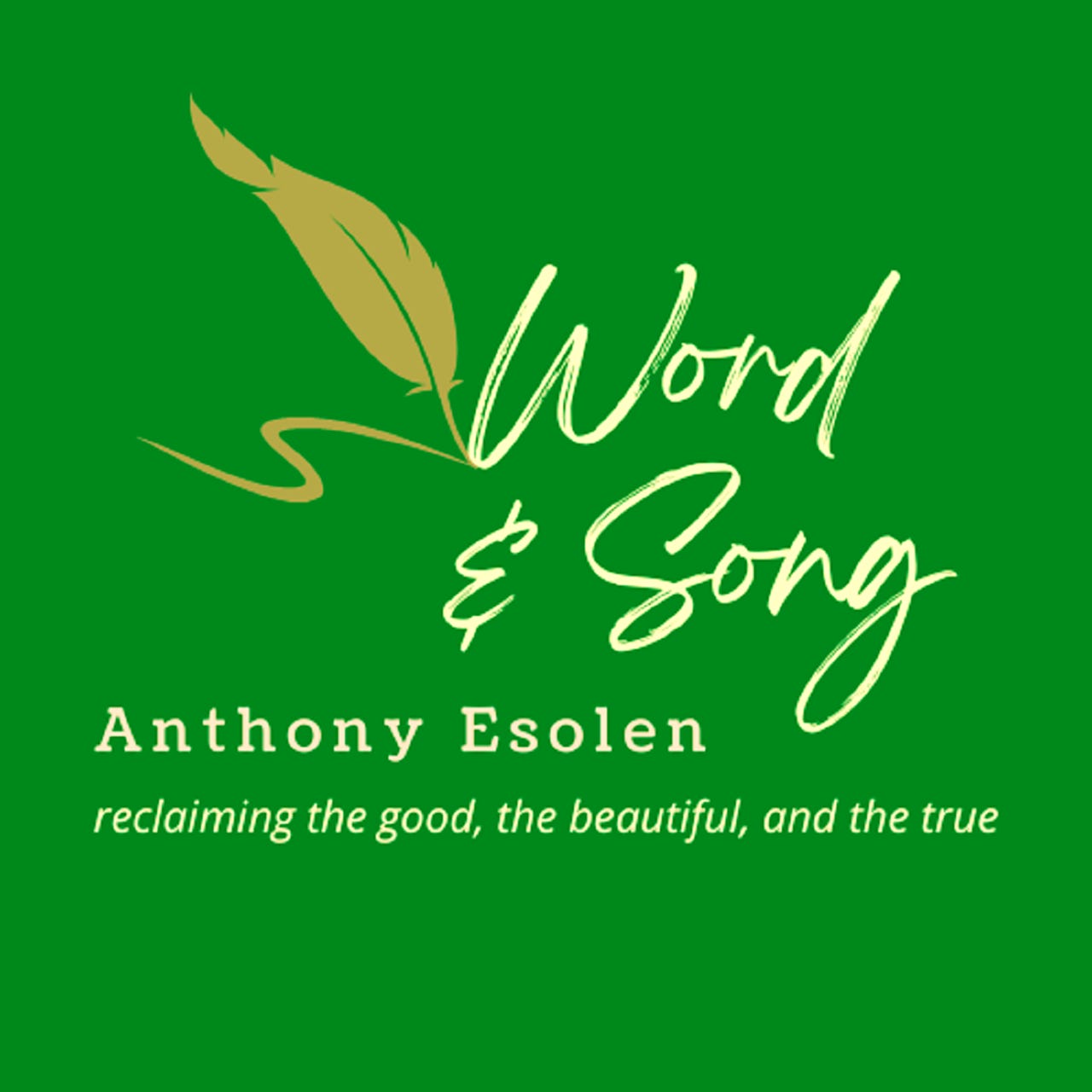"Green Grow the Rashes"
Manage episode 413010337 series 3540370
We are extending our Easter special through April 21st at Word & Song with a 20% discount on all upgrades, gift, and new subscriptions. We wish you all the blessings of Eastertide.
It’s spring, right? So then, time for a merry poem about how wonderful the lasses are!
When I was at Providence College, one of my students organized a poetry reading not like the usual ones, where people read their own poems. At this reading, you’d read — or perform from memory, as I did — some favorite poem by a poet who was truly great. I did some Milton and Robert Browning, and one of my colleagues, with whom I rarely saw eye to eye, read our Poem of the Week, Robert Burns’ “Green Grow the Rashes.” And he said, rightly, that anybody who thought that it wasn’t “real” poetry didn’t know what poetry was all about. If only he’d been as sensible about other things too! Ah, but that’s another story.
Of course the poem came to my mind because of our Word of the Week, green, and you might think that green doesn’t have much to do with it, though it’s the first word of the first two lines in the first stanza, which you’d use as a refrain if you sang the poem, as really it ought to be. “Rashes” are just “rushes,” the tall reedy grasses along the lakeshore: Baby Moses, remember, was set afloat on a basket among the “bulrushes” at the banks of the Nile. It’s not clear what “rashes” have to do with “lasses,” except that they rhyme, but there are two things to say about that. First, they’re green! That is, they’re alive, they’re hearty, they’re full of growth, and what else is the union of man and woman for, if not, so to speak, green growing things? Second, Burns didn’t himself come up with those lines. They’re from an older Scottish song, one that’s far too racy to repeat here. In Burns’ poem, you don’t have to think of a poet going after all the lasses in the parish, though the poet in his youth was a bit of a rake. I believe he composed the song soon after his wife — he did say at the time that she was his wife, though it seems to have been kept secret from her father — bore twins.
To read the poem right, you have to enter its merry spirit. Think of it this way. Suppose everybody is telling you all the time that you have to be serious about things, namely about making your way in the world, getting into the right businesses, stashing money away in the bank, and clawing up the ladder of ambition. Is that really what life is all about? A name plate on a desk, a hefty paycheck, a mortgage just as hefty, and then — what? Better to enjoy the wife of your youth, as the Preacher says, and the patter of little children, than to go after wealth and power and rank, all of which will dry up and fly away in the wind. The poem, to put it another way, isn’t meant to be a sermon; it’s meant to be fun, and to remind us not to look down on the sweet things in this life.
And there’s one more thing I like about the poem. Well, two — I do enjoy the rough and ready Scots dialect. That’s English, everybody; it is not Gaelic, and not even close. Some of the differences between it and London English come from a greater French influence, if anything, and from its holding on to old words and old pronunciations that had fallen away down south. There aren’t any words that should cause you any trouble, except maybe douce, meaning serious, and cannie, meaning quiet, and the wonderful tapsalteerie, an English-Frenchy form of topsy-turvy.
The other thing I like? It praises the lasses, O! When was the last time you heard a woman in our time say, “Men — how wonderful they are!” Or a man, saying, “Women — thank God for them!” It’s dew on a dry land, to hear that praise.
Green grow the rashes, O! Green grow the rashes, O! The sweetest hours that e'er I spend, Are spent amang the lasses, O! There's nought but care on every han' In every hour that passes, O; What signifies the life o' man, An 'twere na for the lasses, O? The warl'ly race may riches chase, An' riches still may fly them, O; An' though at last they catch them fast, Their hearts can ne'er enjoy them, O. But gi'e me a canny hour at e'en, My arms about my dearie, O, An' warl'ly cares an' warl'ly men May a' gae tapsalteerie, O! For you sae douce, ye sneer at this, Ye're nought but senseless asses, O; The wisest man the warl' e'er saw, He dearly loved the lasses, O. Auld Nature swears the lovely dears Her noblest work she classes, O; Her 'prentice han' she tried on man, An' then she made the lasses, O.
Share Word & Song by Anthony Esolen
Word & Song by Anthony Esolen is a reader-supported online magazine devoted to reclaiming the good, the beautiful, and the true. We publish six essays each week, on words, classic hymn, poems, films, and popular songs, as well a weekly podcast, alternately Poetry Aloud or Anthony Esolen Speaks. To support this project, please join us as a free or paid subscriber.
19 επεισόδια






